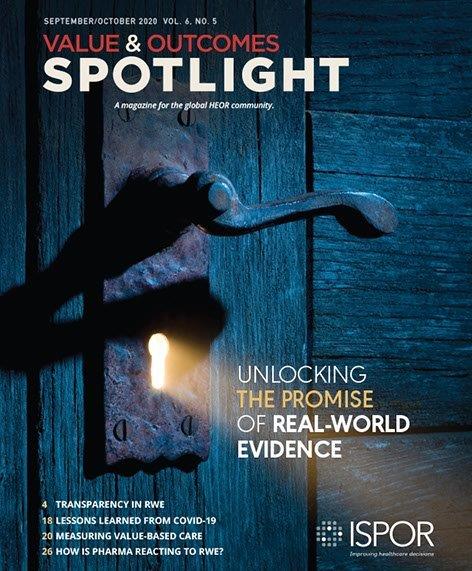Let's Get Real About Real-World Evidence
The promise of real-world evidence (RWE) has long been touted in the field of health economics and outcomes (HEOR) research and its principles have formed the basis of analyses and construction of models requiring robust, timely, and generalizable data. RWE continues to be leveraged to understand how well pharmaceuticals, devices, and other healthcare innovations work when implemented in practice. However, with the emergence of “big data” and increased digitization of healthcare data, RWE has created opportunities to further close the gap between clinical trials and practical clinical care. In addition to bridging this gap, RWE has begun to drive greater levels of engagement and collaboration among stakeholders, including providers, patients, payers, policy makers, and manufacturers. As Jennifer Graff, PharmD, Vice President of National Pharmaceutical Council, stated, “researchers have estimated that the use of real-world evidence could reduce trial costs between 5% to 50% to expedite safety monitoring and simplify trial and data collection,” potentially lowering overall costs for providers, payers, and—most importantly—patients. Although RWE continues to face some challenges, such as reluctance to trust its validity and reliability, a role for both RWE and randomized clinical trials (RCTs) exists in the research community. Taken together, while keeping the patients’ needs in mind, both RWE and RCTs can be utilized to better understand and manage diseases to improve outcomes for people worldwide.
"With the emergence of “big data” and increased digitization of healthcare data, real-world evidence has created opportunities to further close the gap between clinical trials and practical clinical care."
The COVID-19 pandemic has made it abundantly clear that RWE is necessary for protecting and improving human health. The use of dashboards to inform our daily understanding of positive cases, positivity rates, hospitalizations, and mortality is just one example where RWE has played a critical role in understanding and managing this ongoing pandemic. Additionally, the gathering of RWE is the tenet of successful contact tracing, enabling us to understand and act quickly to manage and extinguish disease outbreaks. Practices such as social distancing, mask wearing, and hand washing have been informed mostly by data sources other than clinical trials. In short, the world needed to “get real” to tackle COVID-19 as quickly as possible in the absence of a vaccine. In the postvaccine era, undoubtedly, RWE will continue to be critical for assessing effectiveness, informing costs of vaccines (as well as safety monitoring), and guiding evidence-based policy decision making.
"The COVID-19 pandemic has made it abundantly clear that RWE is necessary for protecting and improving human health. In short, the world needed to “get real” to tackle COVID-19 as quickly as possible in the absence of a vaccine."
Recently, at the Virtual ISPOR Asia Pacific 2020 conference, Value & Outcomes Spotlight asked attendees to submit self-recorded videos describing what RWE means to them. A consistent response was that RWE should be gathered from sources wherever and whenever it happens—not only from administrative data sets and electronic health records, but also from social media, wearables, and mobile devices. The responses obtained were insightful and illustrate the importance of engaging our readers in a conversation about trends and topics in our rapidly evolving field.
We plan to produce another “Spotlight on” email series for Virtual ISPOR Europe 2020 that includes daily news stories from the conference that will appear on the Value & Outcomes Spotlight website. As always, thank you for your continued support and we welcome your feedback as we seek to reach HEOR audiences in new ways.
Zeba M. Khan, RPh, PhD and
Laura T. Pizzi, PharmD, MPH
Editors-in-Chief,
Value & Outcomes Spotlight


